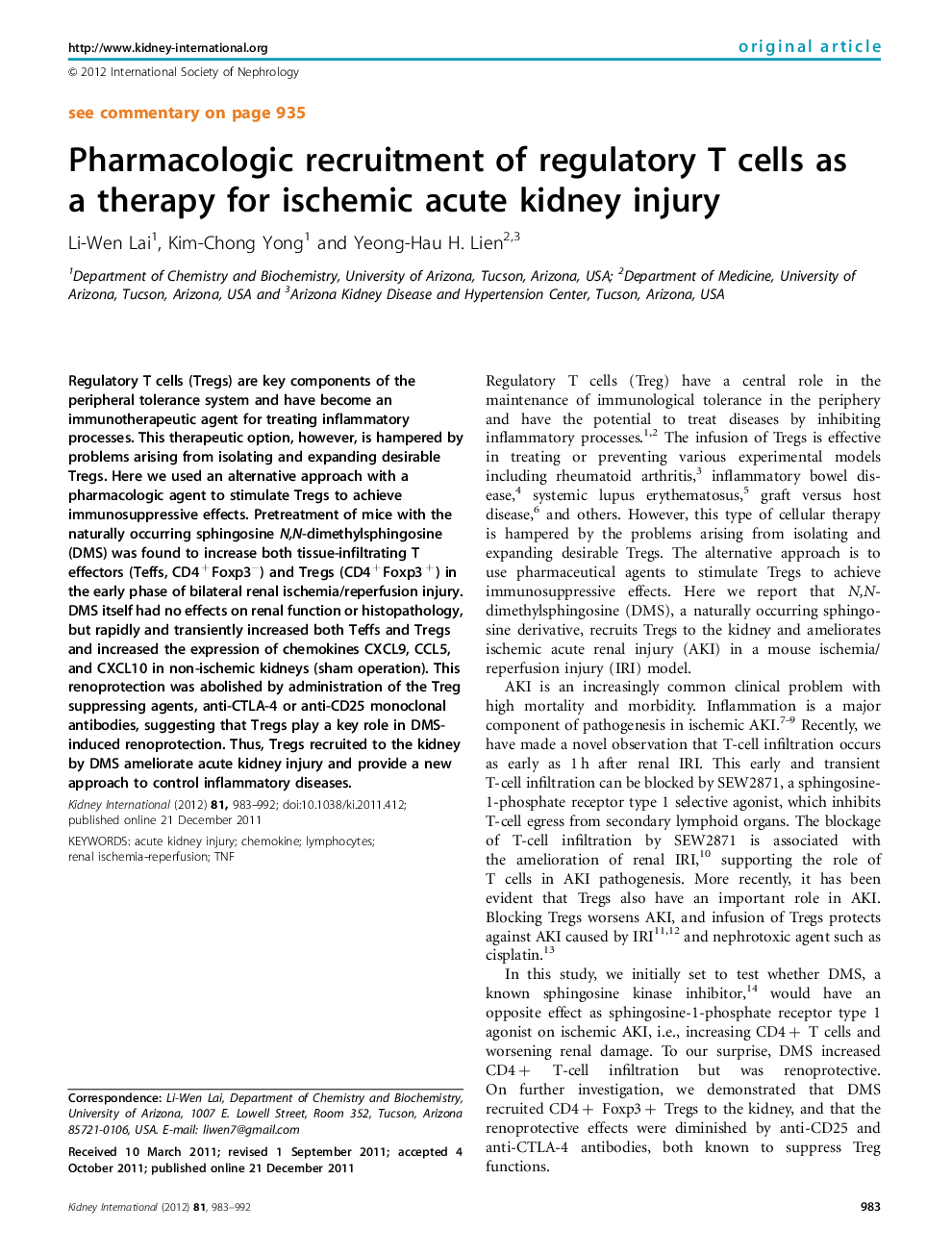| Article ID | Journal | Published Year | Pages | File Type |
|---|---|---|---|---|
| 6161520 | Kidney International | 2012 | 10 Pages |
Abstract
Regulatory T cells (Tregs) are key components of the peripheral tolerance system and have become an immunotherapeutic agent for treating inflammatory processes. This therapeutic option, however, is hampered by problems arising from isolating and expanding desirable Tregs. Here we used an alternative approach with a pharmacologic agent to stimulate Tregs to achieve immunosuppressive effects. Pretreatment of mice with the naturally occurring sphingosine N,N-dimethylsphingosine (DMS) was found to increase both tissue-infiltrating T effectors (Teffs, CD4+Foxp3-) and Tregs (CD4+Foxp3+) in the early phase of bilateral renal ischemia/reperfusion injury. DMS itself had no effects on renal function or histopathology, but rapidly and transiently increased both Teffs and Tregs and increased the expression of chemokines CXCL9, CCL5, and CXCL10 in non-ischemic kidneys (sham operation). This renoprotection was abolished by administration of the Treg suppressing agents, anti-CTLA-4 or anti-CD25 monoclonal antibodies, suggesting that Tregs play a key role in DMS-induced renoprotection. Thus, Tregs recruited to the kidney by DMS ameliorate acute kidney injury and provide a new approach to control inflammatory diseases.
Related Topics
Health Sciences
Medicine and Dentistry
Nephrology
Authors
Li-Wen Lai, Kim-Chong Yong, Yeong-Hau H. Lien,
